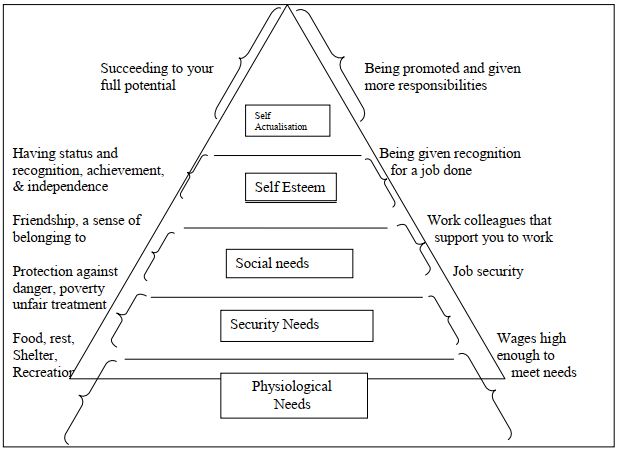Many theories have been developed on motivation. The following are some theories that could support motivation.
Achievement Theory (mcClelland)
Human beings are seen to be driven by three main factors:
- Need to achieve
- Need for power
- Need for affiliation
To achieve means success and therefore the underlying entrepreneur motivation. If you need to achieve you select goals which will accomplish the need. This need makes an entrepreneur to be persistent. They choose challenging tasks. This motivation behaviour is related to parental characteristics, family, culture, role models.
Laws of Control
Talks about the need to control. To make things happen. We want to see the outcome of an event. Our behaviour will determine the results. Self concept here is very crucial, want to strive for your success(internal laws of control)
External laws of control – believes that outcome of an event is influenced by factors beyond you. They believe in others influence on an activity. So an entrepreneur must know whether they is driven by an inner need to succeed and win. Are you internally or externally driven. In evaluating your internal – external control dimensions, an entrepreneur depicts a sense of control over his/her life.
Abraham Maslow’s Hierarchy of Needs
This theory was developed by Maslow in 1954. It states that human needs are arranged in hierarchical order beginning with the most basic need.
Maslow suggests that each level in the hierarchy must be achieved before an entrepreneur can be motivated by the next level. E.g. when a social need is satisfied, it ceases to be a motivator. Your full potential motivation depends on you not others. One must strive to realise your full potential.
Many people like the comfort and security they have in their jobs. As long as they are able to provide to their families. They could be having resources needed to start a venture but have no drive to do so.
Motivation for venturing into business vary a lot. Those frequently cited would include, both internal and external motivational factors

